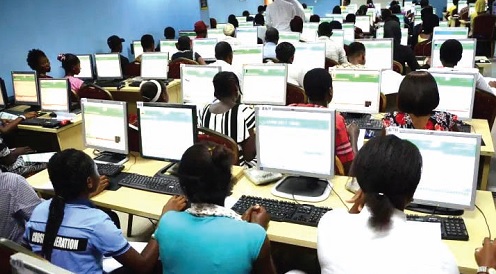
Embracing digital assessment for credible national exams
The world is evolving digitally and in all human activities namely banking, industries, security, commerce, transportation and education among others.
Advertisement
Teaching and learning practices have received noticeable transformation through digital technology.
Educational assessment has rapidly gained attention with the integration of digital technology.
With the provision of modern online digital technological tools, which comprise computers, internet facilities, teleconferencing, videophones, projectors, multimedia systems and mobile technology, teachers can now assess students’ work quickly and easily, thereby saving more time for classroom instruction.
Digital technology, especially online educational technology tools, tends to innovate educational instruction and assessments in schools.
Students are also getting more entangled with technology for social media interactions and research work since it enables them to search and do their assignments.
Meanwhile, teachers are beginning to use them for assessment purposes because they are more convenient and offer fast and fair assessments of students’ work while providing instant feedback to students.
This trend seems to have started relegating paper and pencil testing to the background, thereby making it mitigate its relevance and importance.
Advantages of digital assessment
It provides immediate feedback for a real-time learner-led response that diagnoses and reduces misconceptions quickly and provides more opportunities for feedback from a range of audiences.
This can also lead to useful and new forms of teacher and learner dialogue, improvements in the assessment experience and increased student engagement.
It increases learners' autonomy, agency and self-regulation to support more personalised responses to work and progress which can facilitate self-evaluative and self-regulated learning through diverse collections of evidence, immediate formative feedback, better tracking of progress on learning outcomes and reflection on achievements.
Support for collaborative learning gives opportunities for peer assessment, undertaking and tracking knowledge building and sharing activities, co-evaluation and social interaction.
It provides authenticity to present challenging problems and ways to assess complex skills such as problem-solving, decision-making, and testing hypotheses, which is argued to be more authentic to future work experiences and what skills and knowledge will be required after formal education.
Widens the range of measurement through the ability to create and visualise complex data sets and models that consider multiple factors, digital technologies can elicit and measure multi-faceted skills, sets of knowledge and cognitive processes that have previously been difficult to assess.
Flexible and appropriate responses may offer choice in approach, format and timing of assessment for students, who can access assessment at a time and a place of their choosing, with no constraints due to time or location.
Additionally, digital tools such as simulations, provide multiple modalities and could offer more accessible assessment than text-based tests for students with varied learning styles or language backgrounds.
Increase efficiency and reduce teachers' workloads by improving the efficiency of data management such as marking, moderating and storing information by helping teachers to use their time and resources better.
Evaluations show that e-feedback can improve student performance and demonstrate other benefits such as better student engagement.
Digital technologies can integrate assessment and instruction, as in immersive learning environments or programmes that monitor how students solve problems on the computer and provide immediate feedback can help track assessment validity through the use of rich media rather than just text.
Also provides an improvement in the reliability of scoring and robust data sets for deeper analysis.
Disadvantages of digital assessment
There are concerns about plagiarism detection and invigilation issues.
Difficulties in scalability and transferability of practices, particularly in higher education when different departments often have autonomous, separate working practices and cultures.
Concerns over reliability and validity of high-stakes assessment such as how to ensure all students receive equivalent tests if questions are selected at random from a question bank.
User identity verification and security are key issues.
Lack of staff time and training for rethinking assessment strategies and how to use new technologies from a technological and pedagogical perspective.
Implementing new technology systems requires significant investment in training, support and interoperability.
Additionally, some tools require large capital investment and infrastructure that many institutions do not want to prioritise.
Lack of policy leadership and system-wide imperatives as well as suitable physical spaces for technology-enhanced assessment.
The government and examining bodies should develop a roadmap for the gradual integration of digital technology in the conduct of public examinations.
Further, the government should make digital technology more accessible to teachers and students.
This should be done by procuring all necessary digital technology tools for the schools.
There should also be a sustained government digital technology policy to coordinate and integrate it into the schools for teaching and assessment purposes.
It is also recommended that the government ensures that requisite telecommunications infrastructure coverage is extended to all schools, especially the rural ones.
The government should provide adequate funding for digital technology in senior high schools (SHS).
It should also make provision for adequate electricity supply in all SHSs.
Standby generators should be provided.
Also, continuous training of teachers on the use of digital technology tools to enable them to acquire the necessary technology skills required to improve the use of digital technology for classroom instructions and assessment.
The writer is a PhD candidate, the University of Ghana
Email: [email protected]




